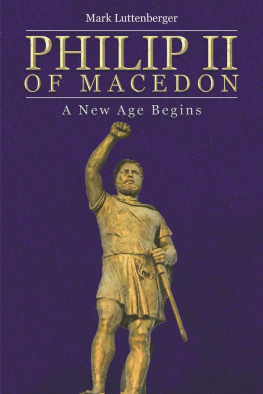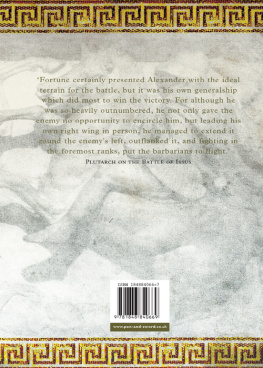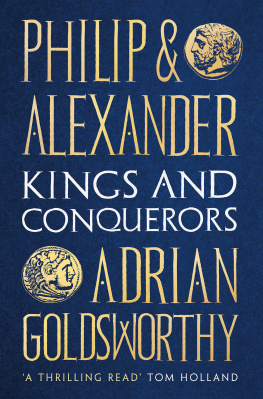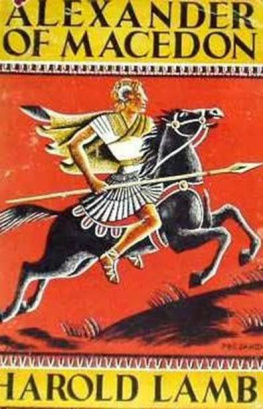Some typographical errors have been corrected; .
(In certain versions of this etext [in certain browsers] clicking on the image will bring up a larger version.)
(etext transcriber's note) |
Famous Assassinations
of History
JULIUS CSAR
Famous Assassinations
of History
From Philip of Macedon, 336 B.C., to
Alexander of Servia, A.D. 1903
By Francis Johnson
WITH TWENTY-NINE PORTRAITS
[image of the colophon unavailable.]
Chicago
A. C. McClurg & Co.
1903
Copyright
A. C. McClurg & Co.
1903
Published September 19, 1903
UNIVERSITY PRESS JOHN WILSON
AND SON CAMBRIDGE, U.S.A.
Preface
T HE thirty-one assassinations, famous in history, which are narrated in this volume, have never before had their stories told in a collected form in any language. The accounts of them were scattered through the historical works of all nations, and through many volumes of private memoirs, which had to be scanned for proper and trustworthy material. It is hoped that their presentation in this form will make an interesting volume, not only for the student of history, but also for the general reader, on account of the historical and psychological interest which attaches to them.
These assassinations embrace a period of nearly twenty-five centuries,that of Philip of Macedon, in 336 B.C., being the first, and that of Alexander and Draga, in the present year, being the last. Only those assassinations have been included which either had an important and political bearing on the world, or on the nation immediately affected, or which left a profound, and, it would seem, indelible impression on the imagination of contemporaries and posterity. All those which were not distinguished by one of these features were excluded from this series.
It will undoubtedly occur to some who read this volume that it should have included the assassination of President Garfield. It was omitted, not from any want of respect or sympathy for the memory of our illustrious martyr-President, but simply for the reason that his assassination rather grew out of the morbid aberration of one diseased mind than out of the general spirit of the epoch in which he lived.
Others may think that the assassinations of Henry the Third of France, of Henry of Guise, and of Marshal Coligny, which are certainly famous in history, should have found a place here. But they all grew out of the same spirit of religious hatred and conflict in France during the sixteenth and seventeenth centuries, and Henry the Fourth was selected as its most illustrious victim.
It has been the object of the writer to make each of these famous assassinations the central scene of a picture in which the political, religious, or national features of the epoch in which the assassination occurred are portrayed with historical fidelity and strict impartiality.
F. J.
Lafayette, Ind. , August 1, 1903.
Contents
|
|---|
| Page |
| Assassination of Philip of Macedon (336 B.C.) |
|
|---|
| Assassination of Tiberius Gracchus (133 B.C.) |
|
|---|
| Assassination of Julius Csar (44 B.C.) |
|
|---|
| Assassinations of Tiberius, Caligula, Claudius, Nero (A.D. 37-68) |
|
|---|
| Assassination of Hypatia (A.D. 415) |
|
|---|
| Assassination of Thomas Becket (December 29, 1170) |
|
|---|
| Assassination of Gessler (A.D. 1307) |
|
|---|
| Assassination of Iez de Castro (A.D. 1355) |
|
|---|
| Assassinations of Rizzio and Darnley (March 9, 1566; February 9, 1567) |
|
|---|
| Assassination of William of Orange (July 10, 1584) |
|
|---|
| Assassinations by Ivan the Terrible (1560-1584) |
|
|---|
| Assassination of Henry the Fourth of France (May 14, 1610) |
|
|---|
| Assassination of Wallenstein (February 24, 1634) |
|
|---|
| Assassination of the Brothers John and Cornelius De Witt (August 20, 1672) |
|
|---|
| Assassination of Alexis, Son of Peter the Great (June 26, 1718) |
|
|---|
| Assassination of Peter the Third of Russia (July 17, 1762) |
|
|---|
| Assassination of Gustavus the Third of Sweden (March 17, 1792) |
|
|---|
| Assassination of Jean Paul Marat (July 13, 1793) |
|
|---|
| Assassination of Paul the First of Russia (March 24, 1801) |
|
|---|
| Assassination of August von Kotzebue (March 23, 1819) |
|
|---|
| Assassination of the Duc de Berry (February 13, 1820) |
|
|---|
| Assassination of Abraham Lincoln (April 14, 1865) |
|
|---|
| Assassination of Alexander the Second of Russia (March 13, 1881) |
|
|---|
| Assassination of William McKinley, President of the United States (September 6, 1901) |
|
|---|
| Assassinations of Alexander I. and Draga, King and Queen of Servia (June 10-11, 1903) |
CHAPTER I
PHILIP OF MACEDON
PHILIP OF MACEDON
Famous Assassinations
CHAPTER I
ASSASSINATION OF PHILIP OF MACEDON
(336 B. C.)
T HE assassination of Philip of Macedon, which occurred in the year 336 B.C., was one of the most important in ancient history, not only because it terminated the glorious career of one of the most remarkable men of his times, but also because it led immediately to the accession of Alexander, one of the supremely great men of history,an event which would very likely not have taken place at all if Philip had continued to live for a number of years and had himself selected the successor to his throne. Philip of Macedon was then at the height of his power. The battle of Chronea, in 338 B.C., had made him the master of Greece; and by his tactful and generous treatment of the vanquished he had even been appointed by the Amphictyon League commander-in-chief of all the Greek forces, which he intended to lead, at the head of his Macedonian army, against the Persians, and to conquer their mighty empire. This stupendous plan, by whose accomplishment Philip would have anticipated the glorious achievements of Alexander, his son, was frustrated by his assassination.
While Philip had arranged everything for his descent upon Persia, and had been frequently absent from home, his domestic affairs in his own capital, which had never been of a very satisfactory character, took such an unfavorable turn as to require his personal attention. As a husband, Philip had often given just cause of complaint to Olympias, his royal spouse. Wherever he went he formed liaisons, and several illegitimate children were openly recognized by him as his own. But when Olympias, the Queen, laid herself open to a suspicion of having violated her marriage vows in his absence, he repudiated her, charging her with gross infidelity, and intimating that he had very strong doubts of being the father of Alexander. Olympias thereupon went back to her native state, Epirus, accompanied by Alexander, who was highly incensed at the treatment shown to his mother and himself.













